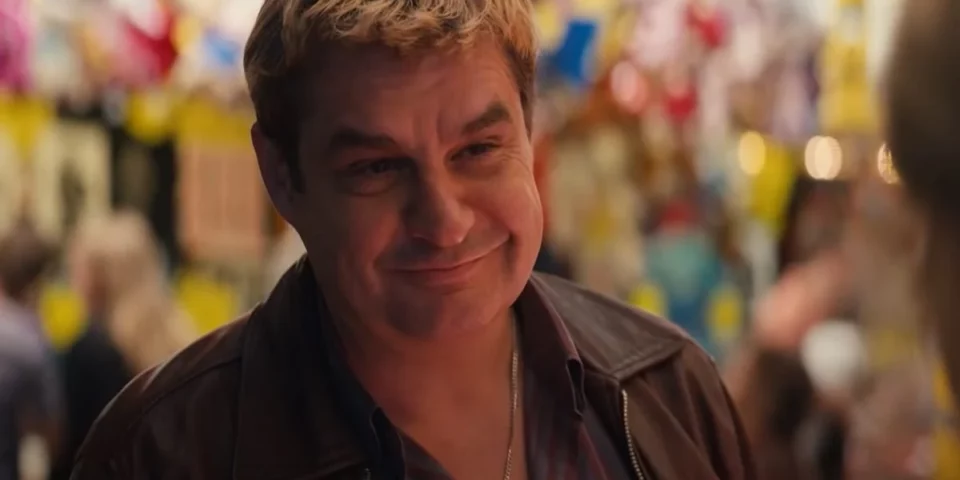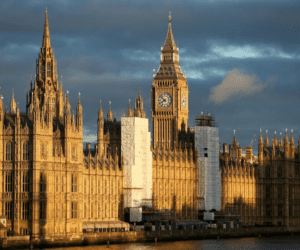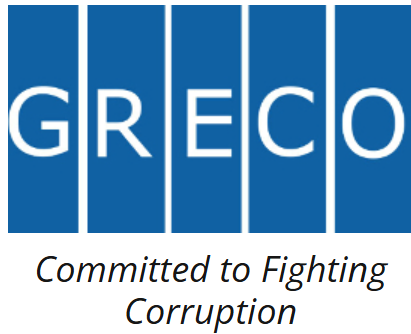
by STEPHEN RAE
for AML Intelligence
HERE at AML Intelligence Towers many of the team are avid fans of the Netflix series, ‘Ferry’ (yours truly included).
Ferry Bouman (played brilliantly by Frank Lammers) is the fictional anti-hero of the Dutch/Flemish crime drama. Unscrupulous but guided by his own criminal moral code, Ferry manufactures industrial quantities of ecstasy (MDMA), makes lots of money, becomes a global supplier and builds an empire.
The series is set in Europe’s drugs super highway – the Belgium-Netherlands border, smack between the continent’s cocaine importation hubs, Antwerp and Rotterdam.
Despite being a killer who wreaks havoc amongst everyone (friend and foe) he comes into contact with, somehow Ferry is depicted as a loveable rogue. A drugs trafficker but somehow likeable, vulnerable, we all quietly cheer for him.
Which got me thinking.
Ferry the series was spawned out of the series, ‘Undercover.’ In the original series the heroes are two courageous Dutch cops, with their own moral ambiguities, who go deep undercover at the Flemish caravan park where the narcotics ring is based.
Apparently the plot was inspired by real-life events, where undercover officers successfully infiltrated a drug kingpin’s operation in Limburg, the Flemish province on the Dutch border.
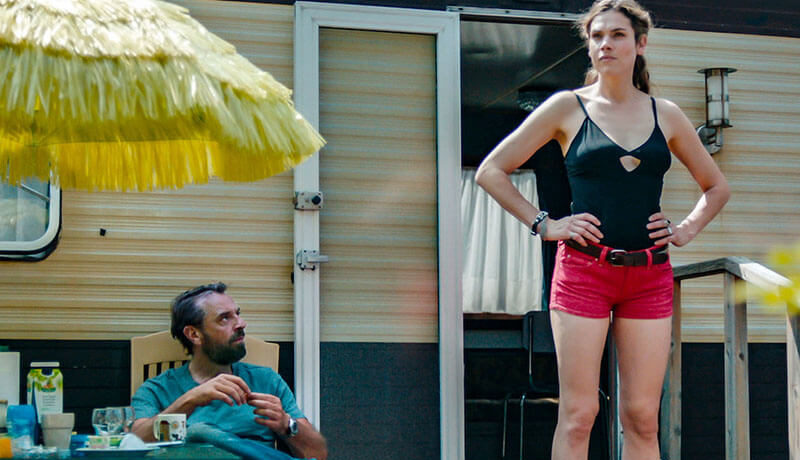
Our fictional two heroes, are detectives Bob Lemmens (Tom Waes) and Kim de Rooij (Anna Drijver), who pose as a couple amidst the wild ongoings at the caravan park. They put their lives on hold and on the line. Their hair-raising experiences undercover cost them emotionally and professionally; not to mention the impact on their families.
The Ferry Effect
Nonetheless after three excellent series of ‘Undercover’ in which the police are depicted as the heroes, it is the character of Ferry which emerges supreme. It leads to a spin-off ‘Ferry’ film and now a brand new Netflix series. ‘Undercover’ submerges, ‘Ferry’ emerges.
It’s what I term the ‘Ferry Effect.’
Increasingly, from Ozark to Suburra and Gomorrah, it is amoral criminals and their dirty money networks which are put front and centre in hit dramas. It’s the gangsters who are glamourised. Yes it is great drama but does it come with a corrosive side-effect?
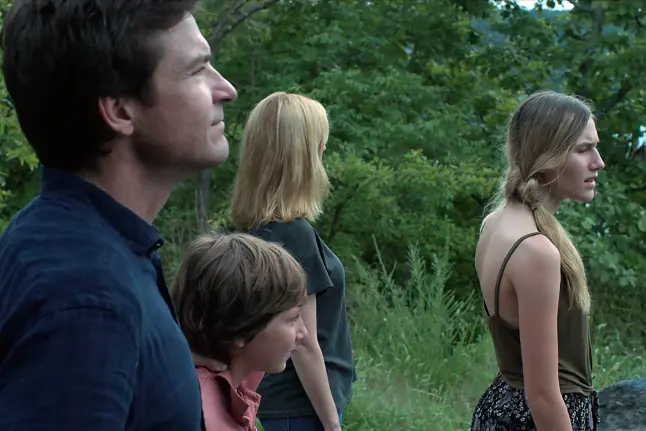
Ironically, many of these dramas are funded by the European Union and national governments. The same governments who are starving law enforcement and are increasingly incapable of getting to grips with the industrial level of drugs trafficking occurring across the bloc. Europe is now the world’s biggest cocaine market – overtaking the US – the European Commission admitted this month. Earlier this year Europol said the threat to the EU from organised crime is increasing.
Could how our popular drama have something do do with Europe’s increasing toleration of organised crime and its dirty money?
In these dramas the police and law enforcement agencies who chase down the gangs on meagre resources are cast as also-rans, a veritable side show.
It can be argued the ‘Ferry-Effect’ diminishes the work of those on the thin blue line. It normalises criminal behaviour and money laundering techniques. It blunts our response to the dangers of organised crime by normalising criminal behaviour.
Real-life gangsters are far from the cuddly, vulnerable albeit murderous Ferry.
‘Dis-respected’
That’s why documentaries such as the recent ‘The Detectives -Taking Down an OCG’ on the BBC are so valuable. This was real life on the streets of Rochdale and Manchester in Britain where a bunch of thugs (the Adam OCG) ran the streets and local business.
The gang we saw would go on to ruin so many lives.
The story begins on the afternoon of October 17, 2017, when a teenage tree surgeon Cameron Brooksbank was savagely attacked by an armed mob. He drew the gang’s ire because he intervened to protect a woman targeted by the thugs in a road rage row in Rochdale. The then 18-year-old victim was one of four workmates set upon on by the gang of up to 20 men – ordered to the scene of the attack by vicious Habibur Rahman.
Drugs gang lieutenant Rahman apparently felt “disrespected” after Cameron stepped in to defend an elderly woman who was at the time receiving abuse for her driving, Manchester Minshull Street Crown Court heard. Rahman then decided to enact ”swift retribution”, a judge said.
Also a member of the mob was Mohammed Sajid, also known as ”Skinny”. Sajid arrived at the scene armed with an axe which he wielded twice – first slashing the victim in the chest, shattering ribs and causing a collapsed lung.
The second blow was later described by prosecutor Tim Storrieas ”aimed at the victim’s head”.
Cameron was left with his arm almost completely severed by the axe and suffered a huge amount of blood loss. The savagery only stopped when one of his colleagues started a chainsaw they used for work to scare the gang members off.
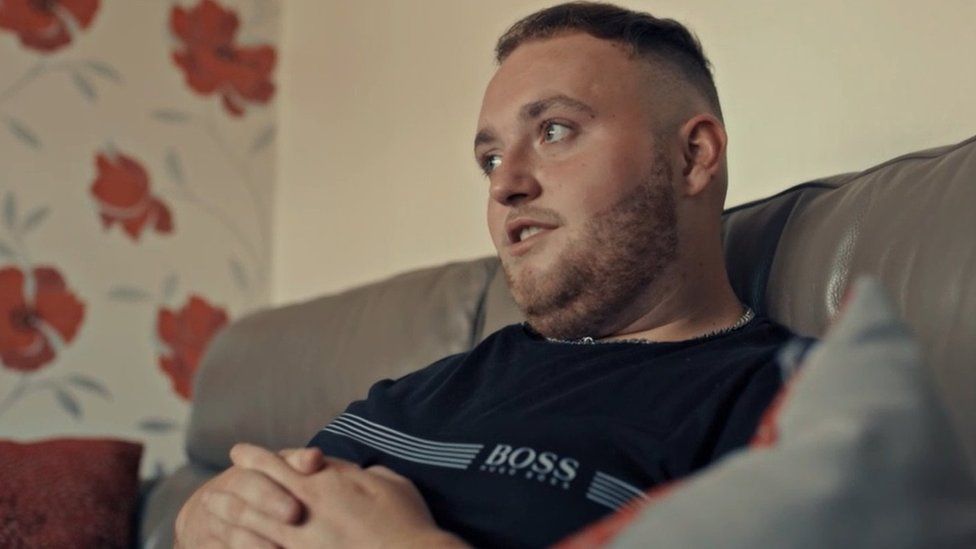
A call from one of Cameron’s colleagues to the police is featured in the documentary and reveals how they told the operator that somebody “just took my mate’s hand off with an axe”. After the attack he was taken to hospital where he received life-saving surgery and had his hand partially reattached.
‘I felt something warm and wet. As I turned around I saw the axe was about here [at side of head] and I put my arm up. The axe went through the top of my wrist and then it shattered my bone’
He then required a further five surgeries in the two years following and was able to maintain just 60 percent use of his arm.
In the BBC documentary, Cameron tells police how he was left both physically and mentally scarred by the ordeal. “The first hit was on my left hand side just under my armpit….It went that far in he had to yank it back out,” he said.
“I felt something warm and wet. As I turned around I saw the axe was about here [at side of head] and I put my arm up. The axe went through the top of my wrist and then it shattered my bone.”
“I remember absolutely every single second of that day,” he said.
Sajid was one of four men jailed for the attack in 2019 and was sentenced to 18 years in prison for committing section 18 assault.
His associate Habibur Rahman was also handed a prison sentence of four-and-a-half years on an assault charge.

Two more members of the gang were jailed on the charge of conspiracy to commit violent disorder, one of which was Habibur Rahman’s brother, Zillur Rahman.
What happened to Cameron Brooksbanks after the axe attack?
Sadly, as the credits roll on ‘The Detectives: Taking Down an OCG’ we see that Cameron died earlier this year. Details of his death are not disclosed.
Prior to episode airing on BBC Two on November 1, Greater Manchester Police said “Cameron sadly passed away this year in non-suspicious circumstances. We will be posting something in memory of him this evening once the show has aired.”
Cameron does appear in several episodes of the documentary as police footage from the time of the attack and the 2019 trial are shown.
Determined
In the third episode of the BBC series, in a 2019 interview with officers, he details the impact that the attack has had on his life since. “I woke up from the operation and thought everything like my career has gone down the drain,” he says.
“I had five operations and got depressed, and tried to do myself in a few times. I took an overdose and was rushed into hospital.”
He added: “I am not the same person as I was two years ago and I don’t think I ever will be.”
It’s people like Cameron who are life’s real heroes. And the determined detectives on limited resources who tenaciously took down the Adam OCG who are more worthy of Netflix dramas.
But that’s not what we get. We get Ferry. And it’s a gripping, brilliantly produced drama. It is outstanding entertainment. But it’s not realistic insofar as organised crime leaders like Ferry Bouman are not generally in my experience very cuddly or endearing. And it does glamourise crime and money laundering, which have huge effects on lives in terms of human trafficking, racketeering and undermining democracy.
We, the European Union, our national governments and citizens should be paying tribute to the witnesses who give evidence against dangerous, de-sensitised gangsters – at huge personal cost – and the many determined cops who bring them to court. Not Ferry – well at least not all of the time.

